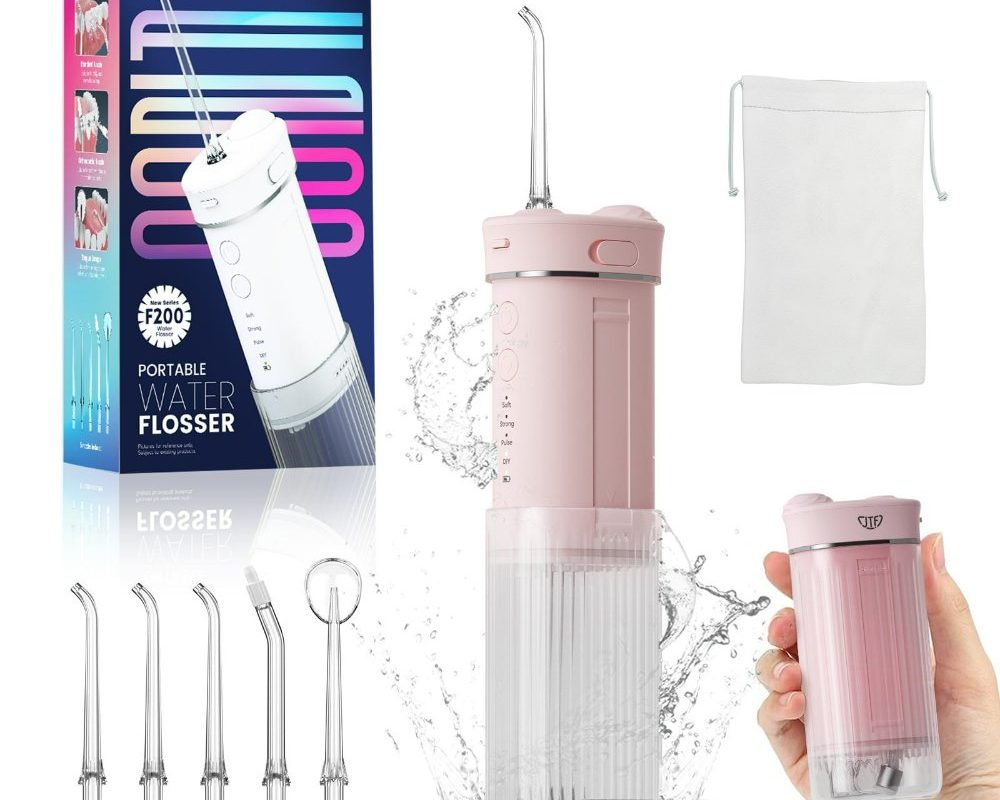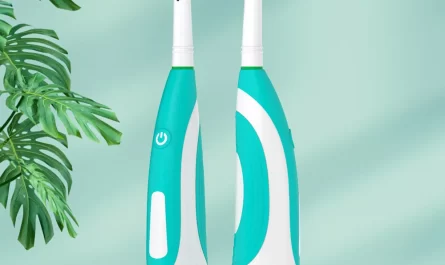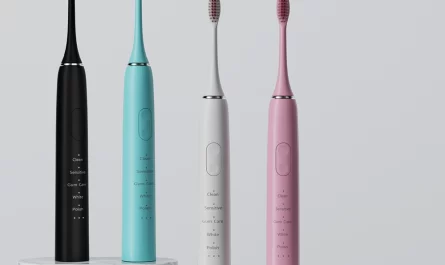What is a Water Flosser?
A water flosser, also known as an oral irrigator, is a dental device. It uses a stream of pulsating water to remove food particles and plaque from between teeth and below the gumline. It’s an alternative to traditional string flossing. People power it with electric or batteries, and it comes with various nozzle tips. These tips allow for various streams of water for different cleaning needs.
As a tool for oral hygiene, it is helpful for those who find string flossing difficult or painful. This includes individuals with braces, dental implants, or sensitivity issues. The device is easy to use. You fill the reservoir with water, select a nozzle, and direct the stream between your teeth and along your gums. Water flossers are becoming more popular. They can effectively complement one’s daily oral care routine. With growing attention to dental health, many ask, ‘is a water flosser worth it?’ Exploring the benefits can help answer this question.
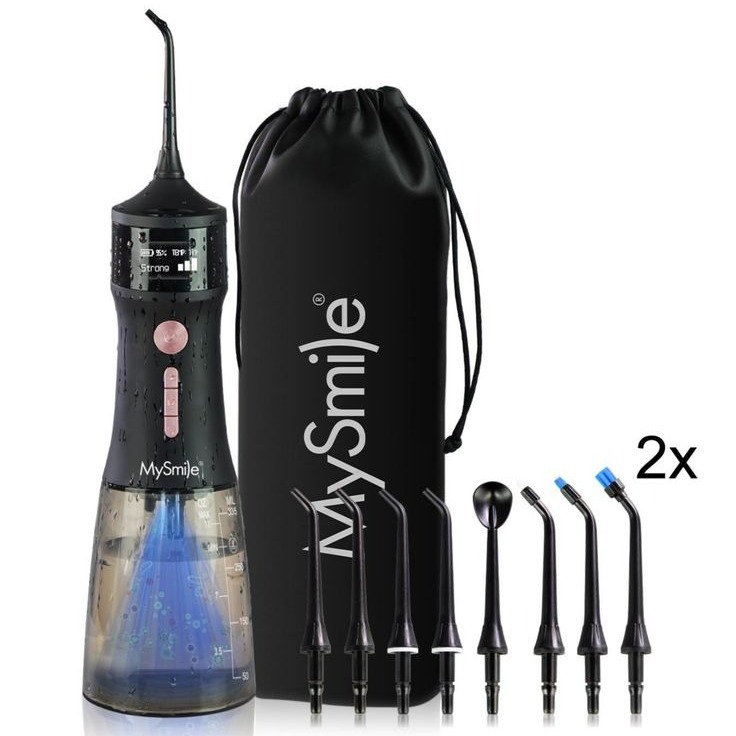
The Benefits of Using a Water Flosser
When considering if a water flosser is worth it, it’s essential to look at the benefits it offers. A primary advantage of using a water flosser is its effectiveness in cleaning between teeth and below the gumline. It can reach areas that traditional floss might miss and is especially useful for those with braces or other dental work.
Here are several key benefits of water flossers:
- Enhanced Cleaning Efficiency: The pulsating water stream can dislodge food particles and plaque with more efficiency than string floss.
- Gentle on Gums: For people with sensitive gums, water flossing is less abrasive than string floss and can reduce bleeding and irritation.
- Ease of Use: Maneuvering string floss between teeth can be tricky for some. Water flossers offer a more straightforward approach to oral hygiene, making them suitable for people of all ages.
- Ideal for Dental Work: Those with braces, permanent retainers, bridges, or implants will find water flossing an excellent tool for maintaining cleanliness around complex dental structures.
- Adjustability for Comfort: With different nozzle tips and pressure settings, users can customize their flossing experience to their comfort level.
- Better Breath: By thoroughly cleaning hard-to-reach spots, water flossers can help to combat bad breath, which often results from lingering food particles and bacteria.
Considering these advantages, the initial investment in a water flosser could be a smart decision for your dental care routine. It has the potential not only to improve oral health but also to provide a more pleasant and hassle-free flossing experience.
Comparing Water Flossers and Traditional Flossing
When weighing whether a water flosser is worth it, comparing it to traditional flossing is essential. Both methods aim to clean between teeth and along the gumline, but they offer different experiences and outcomes.
- Effectiveness in Cleaning: Water flossers may clean between teeth and gums more thoroughly than string floss. They can reach tough spots easier, especially for those with braces or dental work.
- Ease and Convenience: While string floss is small and portable, it can be tricky to use correctly. Water flossers are more user-friendly, especially for those with limited dexterity.
- Time Investment: Traditional flossing is quick and straightforward once you get the hang of it. However, a water flosser might take a bit more time to set up initially, but the actual cleaning process is often faster.
- Suitability for Sensitive Gums: People with sensitive gums may find water flossing more comfortable, as it is less likely to cause irritation and bleeding than string floss.
- Maintenance of Dental Work: Water flossers are highly recommended for those with braces, bridges, or implants. They make it easier to maintain good hygiene around these structures than string floss.
In sum, while traditional flossing works and is tried-and-true, a water flosser offers a level of convenience and effectiveness that can be particularly beneficial for certain individuals or circumstances. The choice essentially boils down to personal preference, comfort, and specific dental needs.
![]()
How to Choose the Right Water Flosser
Choosing the right water flosser is key to ensuring it’s a worthwhile investment. Here are some factors to consider:
- Evaluate Your Needs: Consider your dental health and any special needs. If you have braces or implants, look for models designed for these.
- Check Pressure Settings: A good water flosser should have adjustable pressure settings. This helps customize the flossing experience to your comfort level.
- Look at the Tips and Nozzles: Multiple tips support different cleaning needs. For instance, orthodontic tips are great for braces.
- Consider Reservoir Size: Larger reservoirs mean less refilling. This is convenient for thorough cleaning sessions.
- Prioritize Ease of Use: Choose a water flosser that is simple to set up and operate. User-friendly interfaces save time and hassle.
- Read Reviews and Ratings: Look at what others say about performance and durability. High ratings often signal a reliable choice.
- Check for ADA Approval: The American Dental Association’s Seal of Acceptance is a plus. It means the product meets strict safety and efficacy standards.
- Assess Battery Life and Portability: If you travel often, a flosser with good battery life or global voltage compatibility is ideal.
Remember, the best water flosser for you fits your unique dental circumstances and lifestyle. By considering these aspects, your choice can enhance your oral hygiene routine significantly.
Cost Analysis of Water Flossers
When assessing if ‘is a water flosser worth it’, cost plays a significant role. Initially, water flossers may seem like a sizeable investment compared to traditional string floss. However, when we break down the cost over time and factor in the potential savings from reduced dental treatments, the long-term perspective can make them more appealing.
Initial Purchase Price: Water flossers typically cost more upfront than a pack of string floss. Prices vary based on features and brands.
Ongoing Costs: Consider the electricity for charging, replacement tips, and any water cost. These add up over time.
String Floss Comparison: A single pack of string floss is cheaper but must be purchased repeatedly. Water flossers have a one-time cost with occasional expenses for maintenance.
Potential Dental Savings: By improving dental health, water flossers may reduce the need for costly dental treatments, ultimately saving money.
Durability and Longevity: Quality water flossers can last for years, offering value over time. Look for warranties and build quality when purchasing.
Resale Value: Unlike string floss, water flossers can retain some resale value if kept in good condition.
In conclusion, while the sticker price of a water flosser may be high, the efficiency and potential dental savings could justify the cost. When considering a purchase, factor in the longevity and value it adds to your dental routine. Calculating long-term costs versus benefits will help determine whether a water flosser is a smart financial choice for your oral health.
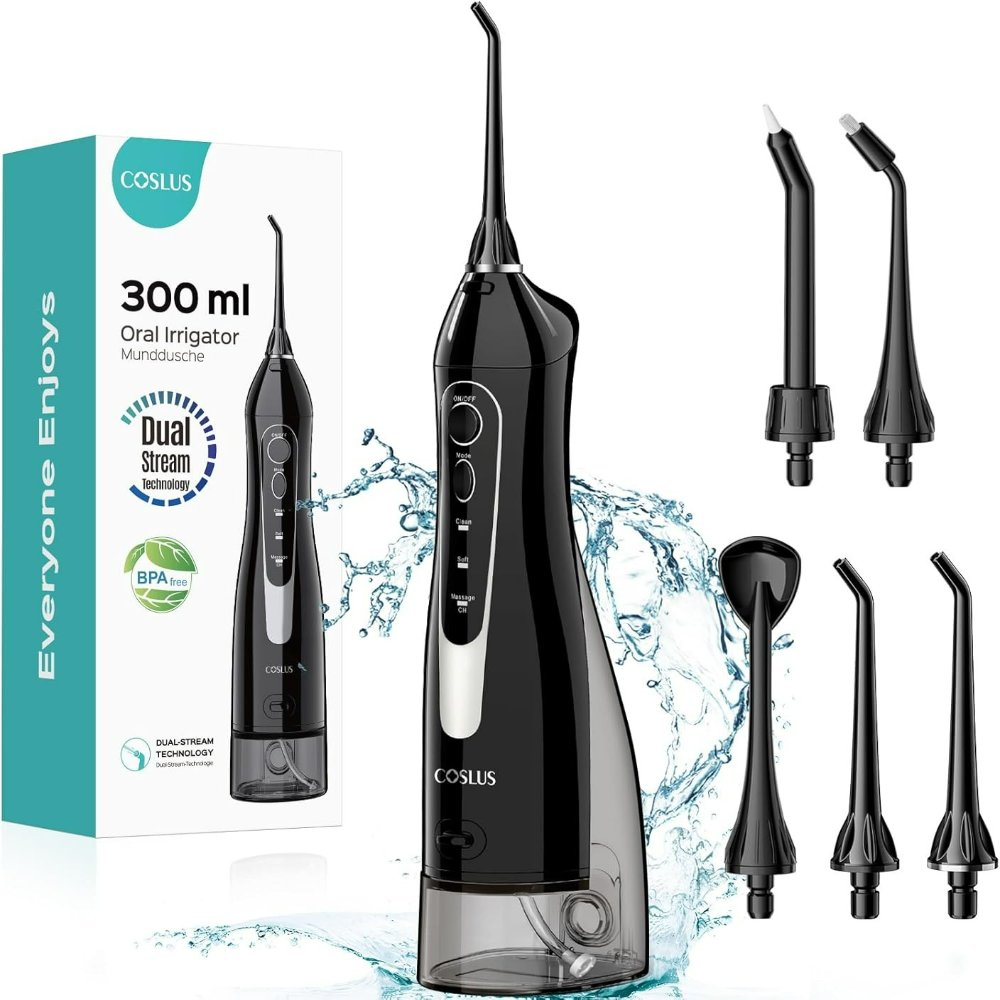
Water Flossers for Specific Dental Conditions
Choosing a water flosser isn’t just about preference. It’s also about dental needs. Certain conditions make water flossing not just worth it, but sometimes necessary.
People with Braces
Braces can trap food easily and make flossing with string a hassle. Water flossers can clean around wires and brackets effectively. They remove trapped food particles and plaque buildup. For braces wearers, water flossers are a game changer.
Individuals with Dental Implants
Implants require careful cleaning to prevent infection. Water flossers can clean around implants gently and prevent gum issues. They are a vital tool for implant maintenance.
Those with Periodontal Disease
Periodontal disease needs consistent deep cleaning. Water flossers reach deep into gum pockets to flush out bacteria. For periodontal care, they offer an additional layer of cleaning.
Patients with Limited Dexterity
Arthritis or other conditions can make holding floss difficult. Water flossers require less fine motor skills. They are an easier option for thorough oral hygiene.
In these cases, ‘is a water flosser worth it?’ The answer leans more towards ‘yes’. It’s not only about convenience but also necessity. When dental conditions limit traditional flossing, water flossers step in to fill the gap. They provide the cleaning necessary to maintain good oral health. Consider your specific dental situation when deciding if a water flosser is right for you.
Care and Maintenance of Water Flossers
Proper care and maintenance can extend your water flosser’s life and ensure its effectiveness. Here are some tips to keep your device in top shape:
- Regular Cleaning: Rinse the reservoir after each use. Soak it in a mixture of water and vinegar weekly to prevent mineral buildup.
- Replace Tips Periodically: Nozzle tips can wear out. Replace them every 3 to 6 months for best performance.
- Handle With Care: Avoid dropping your flosser. Treat it gently to prevent damage.
- Charge Regularly: For battery-powered models, charge as per the manufacturer’s instructions to maintain battery health.
- Empty the Reservoir: When not in use, empty the water reservoir to prevent stagnation and microbial growth.
- Consult the Manual: Different models may have specific care requirements. Always check the user manual for guidance.
By following these simple steps, you can keep your water flosser working well. This care can make your investment into a water flosser worth it in the long run. Healthier teeth and gums could be the rewarding result.
User Testimonials and Expert Opinions on Water Flossers
To gauge if a water flosser is a shrewd purchase, exploring user feedback and experts’ thoughts is valuable.
What Users Say
Many users who’ve tried water flossers don’t go back to string floss. They cite improved oral health and ease of use. Users with braces find it to be a lifesaver for daily hygiene. Those with sensitive gums praise the gentle cleaning that reduces discomfort. A common thread is the satisfaction with how effectively water flossers clean hard-to-reach places.
Experts’ Perspectives
Dentists and hygienists often recommend water flossers, especially for patients with dental work or gum disease. Studies shared by dental professionals suggest water flossers can significantly reduce plaque and gingivitis. However, experts also stress the importance of correct use for optimal results. The consensus among dental practitioners is that water flossers can be a valuable part of oral care routines.
In conclusion, user experiences and expert recommendations generally align, supporting the idea that water flossers can be worthwhile investments. Deciding ‘is a water flosser worth it’ depends on individual needs, but the broader response from those who’ve made the switch and professionals in the field is positive.

